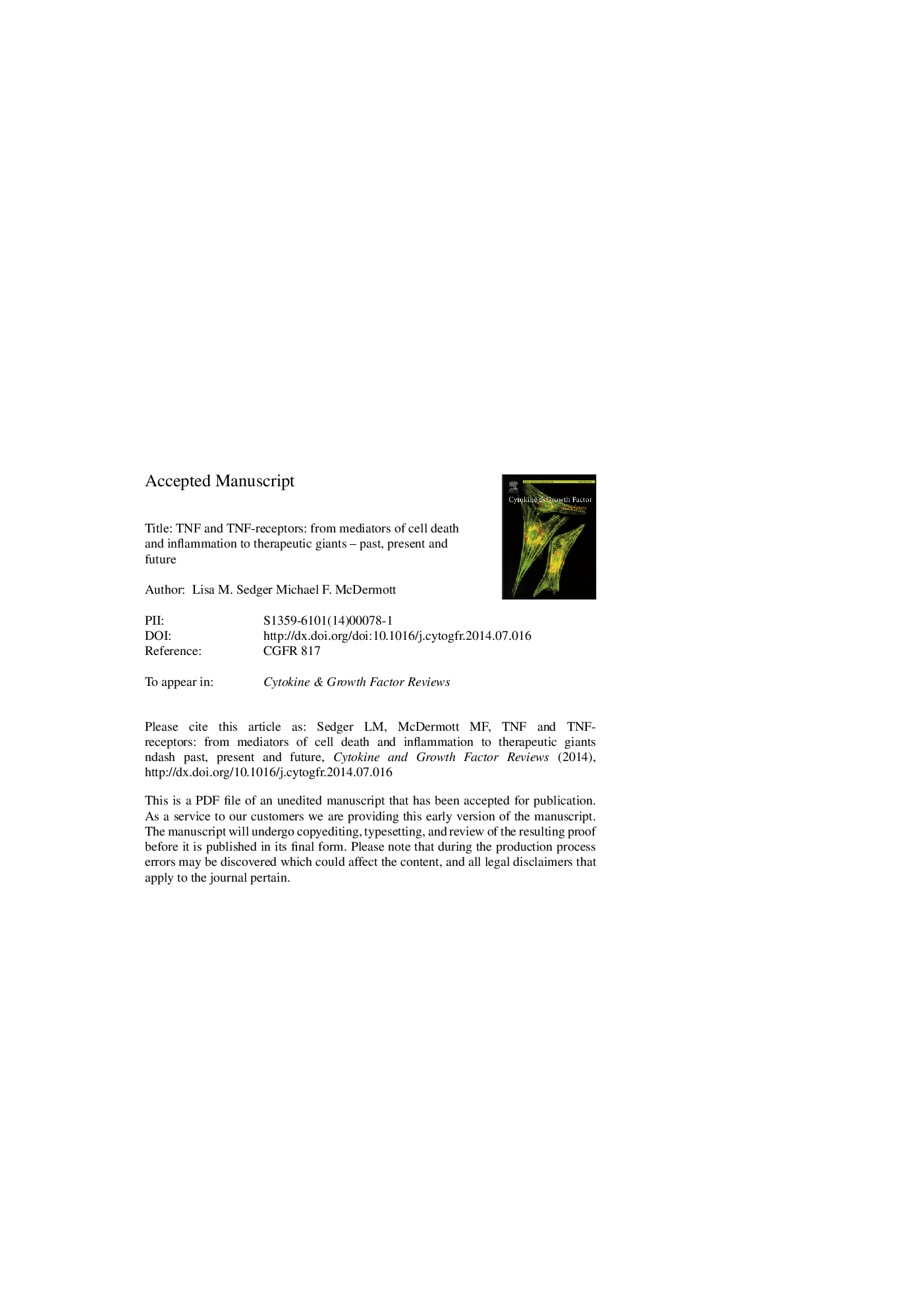| Article ID | Journal | Published Year | Pages | File Type |
|---|---|---|---|---|
| 10930053 | Cytokine & Growth Factor Reviews | 2014 | 59 Pages |
Abstract
Tumor Necrosis Factor (TNF), initially known for its tumor cytotoxicity, is a potent mediator of inflammation, as well as many normal physiological functions in homeostasis and health, and anti-microbial immunity. It also appears to have a central role in neurobiology, although this area of TNF biology is only recently emerging. Here, we review the basic biology of TNF and its normal effector functions, and discuss the advantages and disadvantages of therapeutic neutralization of TNF - now a commonplace practice in the treatment of a wide range of human inflammatory diseases. With over ten years of experience, and an emerging range of anti-TNF biologics now available, we also review their modes of action, which appear to be far more complex than had originally been anticipated. Finally, we highlight the current challenges for therapeutic intervention of TNF: (i) to discover and produce orally delivered small molecule TNF-inhibitors, (ii) to specifically target selected TNF producing cells or individual (diseased) tissue targets, and (iii) to pre-identify anti-TNF treatment responders. Although the future looks bright, the therapeutic modulation of TNF now moves into the era of personalized medicine with society's challenging expectations of durable treatment success and of achieving long-term disease remission.
Keywords
Related Topics
Life Sciences
Biochemistry, Genetics and Molecular Biology
Cell Biology
Authors
Lisa M. Sedger, Michael F. McDermott,
